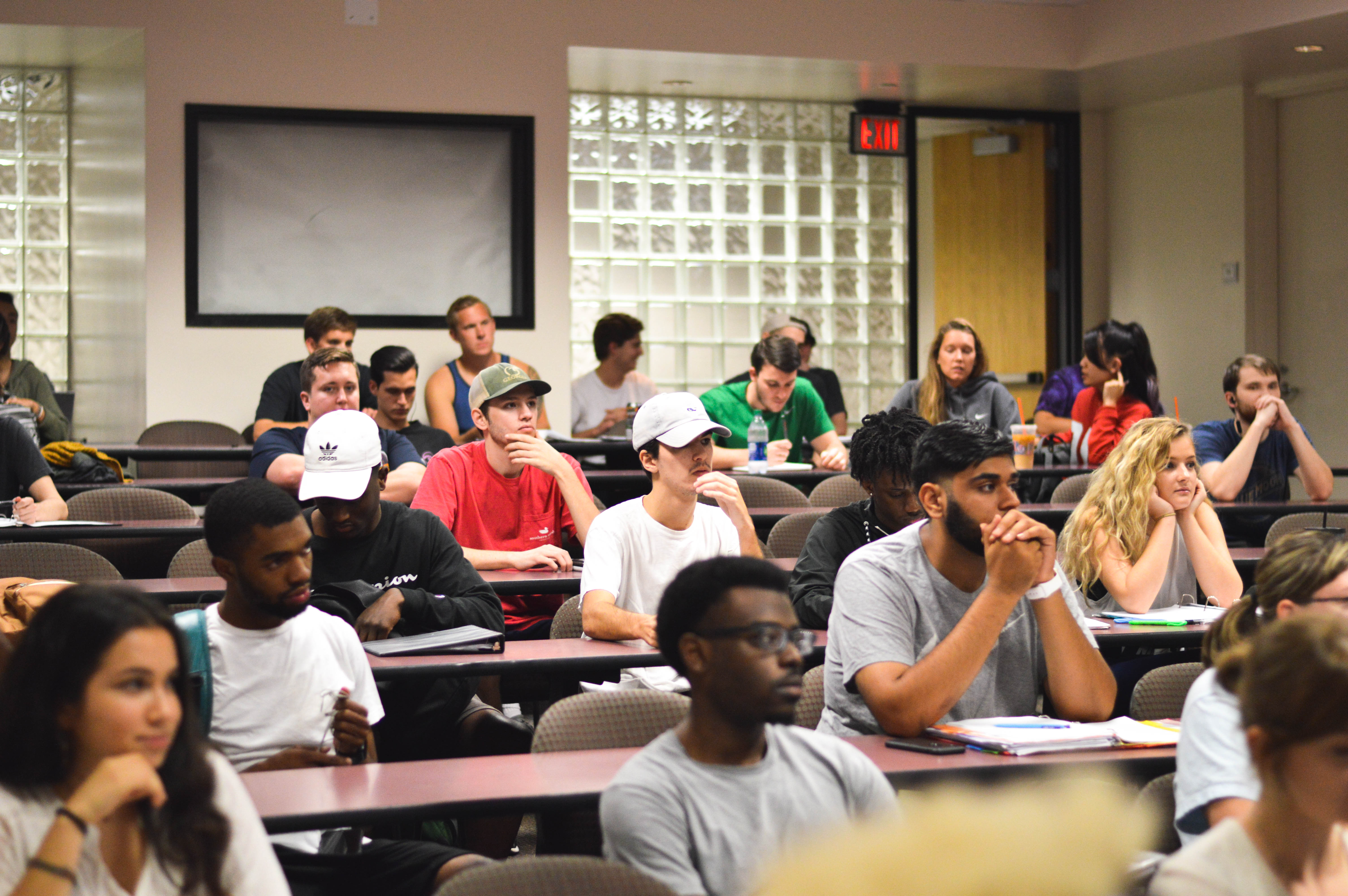College classes often delve into complicated discussions, including heated debates about issues related to race, gender, sexuality and more. When you witness someone using hate speech, you have the responsibility to remind that person, in a civil manner, that such language is unacceptable.
The often unexpected reality is that offensive language may not be intended as offensive. Someone may use hurtful words not out of hate, but rather because they are undereducated about the group they are insulting. It’s also possible that they are emulating the words of parents and peers they have heard throughout their life without giving it much thought.
“I feel like I’m somewhat nurturing when it comes to micro-aggressions,” Stephen Watson, a part-time instructor of history at KSU, said. “Those should be pointed out, but I don’t want to scare a student away from the ‘light side’ and push them to the ‘dark side’ by scolding them in front of their friends and classmates for talking in a way they probably have all their life. But it must be understood that hate speech against marginalized groups is destructive and I want to guide them away from that kind of thinking and discourse.”
Of course, giving the benefit of the doubt does not always result in apologies and understanding. If someone uses hate speech in an intentionally abusive and provocative manner, it falls on everyone to remind that person that such an attitude no longer has a place in this world, and especially not in college.
The purpose of calling out derogatory language should not be to shame or attack the speaker, but rather to educate them on why their choice of words is not okay.
“There was one time in high school where our government class had a mock Congress-type thing where we debated on legalizing gay marriage, which resulted in the opponents saying a lot of sketchy things about gay people,” Connor Welborn, a graduate student in business administration said. “Afterwards the teacher asked for opinions from the group, so I stood up and said that I was gay and gave my perspective. I actually think I convinced quite a few people that being gay is not ‘a choice.”
When it comes to topics like religion or women’s rights, some students may inadvertently say something vulgar as a joke. This is not okay by any means, and they should be informed as such. However, it’s important to do so calmly to keep the offending speaker from becoming defensive and doubling down on their actions.
“Genuine learning can only happen, and learning communities can only form, in the context of our shared humanity,” Christopher Martin, an instructor of English at KSU and alumnus of the professional writing program, said. “Racist, misogynistic, homophobic and transphobic language is dehumanizing, as are the structures that have formed and enabled such language. Anything meant to degrade another’s humanity, which is to say all of our humanity, ought to be spoken against in all times and places, especially in a classroom.”
Our peers deserve to feel at peace with themselves and their surroundings. By calling out hateful or derogatory speech, students can educate each other on immoral speech, engage in meaningful conversations and ensure that classmates feel safe and welcomed at KSU.



